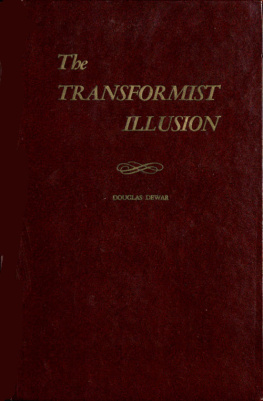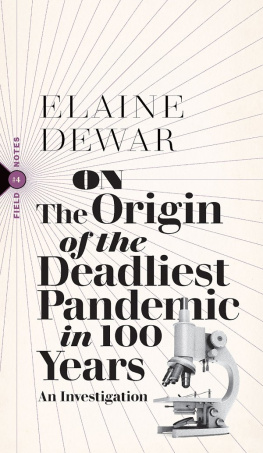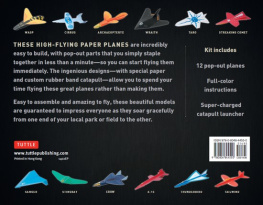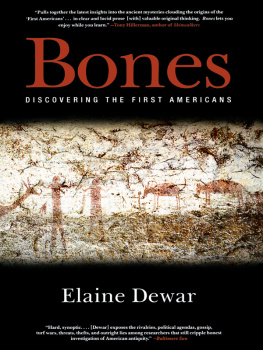Douglas Dewar - The Transformist Illusion
Here you can read online Douglas Dewar - The Transformist Illusion full text of the book (entire story) in english for free. Download pdf and epub, get meaning, cover and reviews about this ebook. year: 1957, publisher: Distributed Proofreaders Canada, genre: Romance novel. Description of the work, (preface) as well as reviews are available. Best literature library LitArk.com created for fans of good reading and offers a wide selection of genres:
Romance novel
Science fiction
Adventure
Detective
Science
History
Home and family
Prose
Art
Politics
Computer
Non-fiction
Religion
Business
Children
Humor
Choose a favorite category and find really read worthwhile books. Enjoy immersion in the world of imagination, feel the emotions of the characters or learn something new for yourself, make an fascinating discovery.
- Book:The Transformist Illusion
- Author:
- Publisher:Distributed Proofreaders Canada
- Genre:
- Year:1957
- Rating:4 / 5
- Favourites:Add to favourites
- Your mark:
- 80
- 1
- 2
- 3
- 4
- 5
The Transformist Illusion: summary, description and annotation
We offer to read an annotation, description, summary or preface (depends on what the author of the book "The Transformist Illusion" wrote himself). If you haven't found the necessary information about the book — write in the comments, we will try to find it.
The Transformist Illusion — read online for free the complete book (whole text) full work
Below is the text of the book, divided by pages. System saving the place of the last page read, allows you to conveniently read the book "The Transformist Illusion" online for free, without having to search again every time where you left off. Put a bookmark, and you can go to the page where you finished reading at any time.
Font size:
Interval:
Bookmark:
* A Distributed Proofreaders Canada eBook *
This eBook is made available at no cost and with very fewrestrictions. These restrictions apply only if (1) you makea change in the eBook (other than alteration for differentdisplay devices), or (2) you are making commercial use ofthe eBook. If either of these conditions applies, pleasecontact a https://www.fadedpage.com administrator before proceeding.Thousands more FREE eBooks are available at https://www.fadedpage.com.
This work is in the Canadian public domain, but may be undercopyright in some countries. If you live outside Canada, check yourcountry's copyright laws. IF THE BOOK IS UNDER COPYRIGHTIN YOUR COUNTRY, DO NOT DOWNLOAD OR REDISTRIBUTE THIS FILE.
Title: The Transformist Illusion
Date of first publication: 1957
Author: Douglas Dewar
Date first posted: Jan. 6, 2022
Date last updated: Jan. 6, 2022
Faded Page eBook #20220107
This eBook was produced by: Stephen Hutcheson, John Routh& the online Distributed Proofreaders Canada team at https://www.pgdpcanada.net
The
TRANSFORMIST
ILLUSION
By
DOUGLAS DEWAR
DEHOFF PUBLICATIONS
Murfreesboro, Tennessee
1957
Copyright 1957
by George W. DeHoff
All rights reserved.
PRINTED IN THE UNITED STATES OF AMERICA
| CONTENTS |
| Chapter I. |
| Chapter II. |
| Chapter III. |
| Chapter IV. |
| Chapter V. |
| Chapter VI. |
| Chapter VII. |
| Chapter VIII. |
| Chapter IX. |
| Chapter X. |
| Chapter XI. |
| Chapter XII. |
| Chapter XIII. |
| Chapter XIV. |
| Chapter XV. |
| Chapter XVI. |
| Chapter XVII. |
| Chapter XVIII. |
| Chapter XIX. |
| Chapter XX. |
| Appendix I. |
| Appendix II. |
| Appendix III. |
| Appendix IV. |
Douglas Dewar is well known to many Americans who have delvedinto the literature against the theory of evolution. For around fiftyyears he has been a student of the subject. Around forty years or moreago he wrote, with Mr. Finn, a work which accepted a theory ofevolution while rejecting Darwinism. Finally his continued study ofthe facts drove him to the conclusion that the theories of evolution arefalse. In recent years he has had published a debate with H. S. Shelton, Is Evolution Proved? Only last year his debate with J. B. S. Haldane,one of Englands leading biologists, came from the press. It is called: Is Evolution a Myth? Dr. L. M. Davies cooperated with Dewar in thisdebate.
There have been some delays in the publication of this book. Mr.Dewar, in August, 1951, added some additional material in the appendices.
I am happy to have a part in bringing this book to the readingpublic. A careful weighing of Dewars arguments and facts is expectedand invited.
James D. Bales
American Secretary of the Evolution
Protest Movement
Harding College, Searcy, Arkansas
In the Spring of 1957, Dr. Douglas Dewar died without having lived tosee this book in print. His many friends on many continents will cherishthis production even more. He being dead yet speaketh.
The Publishers
In my Difficulties of the Evolution Theory published in 1931 Itried to show that the difficulties which beset the theory of organicevolution are so formidable as to render it desirable, if not to abandonthe theory, at least to supplement it by a theory of special creation.
Dr. A. Morley Davies in his scholarly book entitled Evolution andIts Modern Critics, published in 1937, sought to meet most of thedifficulties cited by me and set forth a number of facts deemed by himto support the theory.
In 1938 I published a rejoinder to Dr. Morley Davies entitled MoreDifficulties of the Evolution Theory. Dr. Davies has not pursued thediscussion.
Difficulties of the Evolution Theory has been out of print forsome years, and I have been urged to bring out a new edition. Butrecent discoveries and a change in biological outlook, to say nothing ofthe existence of the two later books just mentioned, would entail therewriting of practically the whole of Difficulties and the inclusion ofmuch of More Difficulties. Accordingly I have written an entirelynew book, which brings my earlier books up-to-date and states thecase against evolution as it stands in 1948.
I have called this new book The Transformist Illusion, becausetoday it is obvious that the theory of evolution as held by Darwin andhis followers is an illusion.
Biology is still in so backward a state that its students are not in aposition to offer a scientific explanation of the world of life. It is, however,sufficiently advanced to enable us to say with certainty that it isan illusion to believe that the blind forces of nature are responsible forthe origin of life and the development of all organisms now livingfrom one-celled ancestors by the accumulation of small variationsduring a period extending over millions of years.
It is high time that biologists and geologists came into line withastronomers, physicists and chemists and admitted that the world andthe universe are utterly mysterious and all attempts made to explainthem have been baffled.
Douglas Dewar
October 31st, 1948
From time immemorial there have been two schools of thoughtregarding the origin of the world of lifethe creationist and the evolutionist.Until the majority of men of science became victims ofDarwinian sophistry the creationist school had the greater number ofadherents.
There is this difference between the two schools of thought; theCreationists do not hope to understand how God created the animalsand plants, the Evolutionists, on the other hand, hope to discover notonly the natural forces which they believe caused life to arise andassume its present diversities, but how these forces have accomplishedthis feat. So far this quest has been entirely unsuccessful, and thereis no prospect of success ever being achieved.
At the outset the evolutionist encounters the supreme difficulty ofaccounting for the origin of life. So great is this difficulty that ProfessorJ. B. S. Haldane, declined to debate evolution with Col. L. M. Daviesand myself, unless the question of the origin of life on the earth wereexcluded from the debate.
All agree that there was a time when life cannot have existed onthe earth.
The Creationist asserts that the first living organisms were createdmiraculously, the evolutionist that they originated in the natural courseof events, as the result of the interplay of forces or the fortuitous concourseof atoms and molecules. The latter view, unlike the former, canbe tested experimentally. If in the past inorganic matter became transformedinto a living organism, it ought to be quite easy to repeat theprocess in the laboratory. We know the chemical elements and compoundsof which the bodies of animals and plants are composed. Thebiochemist has all these at his disposal. He can take any combinationof them he chooses. Thanks to the apparatus at his disposal he canprovide these compounds with any kind of environment he pleases,subject them to any sort of atmosphere, and degree of temperature andpressure, to any description of light or to complete darkness, to electricor galvanic treatment, to cosmic rays, to ultra-violet or ultra-red rays,to X-rays and emanations from any radio-active mineral.
Nevertheless, so far all attempts to convert inanimate compoundsinto living matter have ended in failure. I doubt whether any scientificman today expects to be able to do so, because the extraordinary complexityof even the most minute living organism is realized. Gager trulyremarks that the simplest cell, the unit of every organism, has astructure compared to which that of a modern printing press or awatch is simple and clumsy.
Next pageFont size:
Interval:
Bookmark:
Similar books «The Transformist Illusion»
Look at similar books to The Transformist Illusion. We have selected literature similar in name and meaning in the hope of providing readers with more options to find new, interesting, not yet read works.
Discussion, reviews of the book The Transformist Illusion and just readers' own opinions. Leave your comments, write what you think about the work, its meaning or the main characters. Specify what exactly you liked and what you didn't like, and why you think so.









